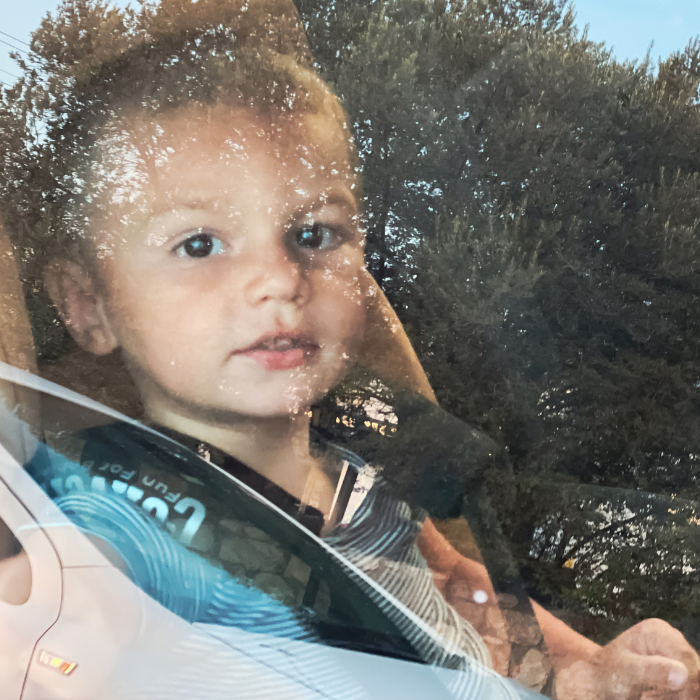
While life seems to have returned to normal – mostly – we’re recalibrating our approach to health, safety, and wellbeing, particularly as summer arrives.
You might feel like most of the health advice you’ve received since early 2020 has been focussed almost exclusively on the pandemic. While COVID-19 is definitely still around, “normal” health and wellbeing concerns are starting to come back into our collective awareness. And with summer serving up lots of opportunity to travel and enjoy family time away from home, it’s timely to consider these summer health and wellbeing tips.
TRAVEL SICKNESS
So you’re on a family road trip when a little voice pipes up from the back seat: “Mum, I don’t feel so good…” Motion sickness affects around 30% of people, and can turn a perfectly planned holiday into a nauseated nightmare. It’s important to know what your child’s motion sickness triggers are, as prevention is the best cure – but if your child is showing symptoms of motion sickness (excessive salivating, pale or clammy skin, breaking out into a cold sweat, dizziness, or feeling nauseated) – be prepared to act quickly. Acupressure bands, nibbling on dry foods like crackers, fresh air, or looking at the horizon can all help. There are also motion sickness remedies you can purchase at the chemist – talk to your pharmacist or GP, and keep in mind that any motion sickness medicines will need to be taken around half-an-hour prior to travelling.
SUN SAFETY
You remember the advice “Slip, slop, slap, wrap”, right? If your kids have been hanging out mostly indoors these past couple of years, it might be time for a little refresher on sun safety. First, if you have any old sunscreens hanging around the house, check their expiry dates and throw out anything that’s past it. As of 8 September 2022, a new law came into effect to require all sunscreen products to be compliant with tighter standards, but there was a transition period where sunscreens that were manufactured in or imported into NZ before 8 March 2022 had until 8 September 2023 to be compliant, so you might still be holding onto some products that aren’t up to standard. The New Zealand Dermatological Society (NZDSI) recommends a broad-spectrum SPF50 or higher sunscreen, must be reapplied at least every two hours when you’re outside, and after swimming or sweating.
SKIN REPAIR
Outdoor adventures and skin cuts, scrapes, and bruises go together, and summer is the prime time for children to get minor injuries. While most wounds are easily managed by cleaning with tap water and letting your child choose the cartoon character plaster they like best, if a wound is deep, won’t stop bleeding, or if your child feels faint or light-headed, then call 111 straightaway. To help cuts or grazes heal well, cover with a non-stick dressing and try to keep the wound dry for the first 24 hours during initial healing, then replace dressings if they become dirty or wet. If the wound was dirty, apply antiseptic ointment, but don’t use this for longer than two weeks. Check whether your child needs a tetanus injection – if it’s been more than 10 years since their last tetanus injection, or more than five years if the wound is dirty or deep, they’ll need a booster. If the wound hasn’t healed after two weeks, or you notice new symptoms like smelliness, discharge, swelling, or warmth/tenderness, see your GP straightaway.
ITCHY BITES
Ah, mosquitoes, fleas, spiders, and all their bitey friends! Summer is the worst time for itchy bites, and they can make kids miserable. An insect bite is usually a red, itchy bump, which may have a blister in the middle. Sometimes insect bites are painful (especially spider bites) as well as itchy. Te Whatu Ora gives the following advice:
- Check and clean every day.
- Wash the bite with cool water.
- Keep your child’s nails short and clean.
- Do things to stop the itching like soaking in a cool bath, or putting calamine lotion or aloe vera on the bites.
- Treat pets for fleas.
- Put mosquito nets around beds, put insect screens on windows and close windows at night.
- Wear close-fitting cotton sleeves or pyjamas.
- Use insect repellent.
- Go to the doctor if the insect bite is near the eye.
- Your child can go to kura or school if they feel well.
If the bites last more than two weeks, the red and swollen area keeps getting bigger or more painful, or there is pus in the bite, see your GP – this could be a serious skin infection such as cellulitis.
Stuffy Little Noses
Hayfever season seems to last from spring right through summer, and can really affect children when they sleep, especially if they’re sleeping with the windows open. If your little one is struggling with nasal congestion, they might benefit from taking a prescription antihistamine – see your GP for advice on this. You could also try a vapour patch, which is a sticker that attaches to your child’s pyjamas near their chest, and contains natural essential oils which might help your child breathe easier. There are also vapour rubs and inhalers which might bring relief.








